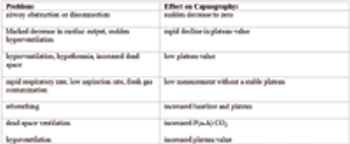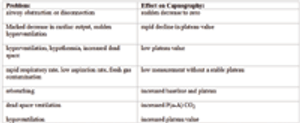
The capnograph is a noninvasive monitoring device that can provide information on ventilation (pulmonary function), blood flow, and equipment function. Knowledge of respiratory and cardiovascular physiology is essential to the understanding of capnography.

